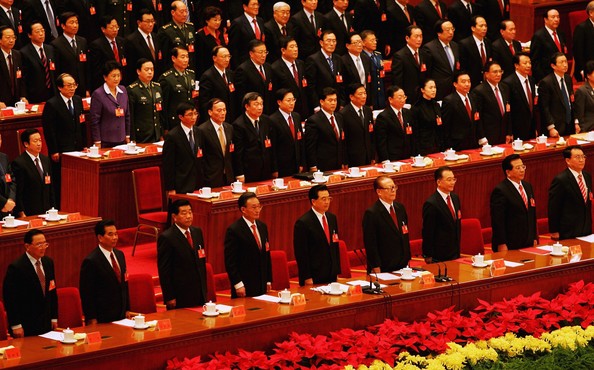 Dharamshala: The Communist Chinese Government has failed to deliver on commitments in its first-ever National Human Rights Action Plan (2009-2010) to protect key civil and political rights over the past two years, Washington based Human Rights Watch said Tuesday.
Dharamshala: The Communist Chinese Government has failed to deliver on commitments in its first-ever National Human Rights Action Plan (2009-2010) to protect key civil and political rights over the past two years, Washington based Human Rights Watch said Tuesday.
The 67-page report, "Promises Unfulfilled: An Assessment of China's National Human Rights Action Plan," details how despite the Chinese government's progress in protection of some economic and social rights, it has undermined many of the key goals of the National Human Rights Action Plan (NHRAP) by tightening restrictions on rights of expression, association, and assembly over the past two years. The report highlights how that rollback of key civil and political rights enabled rather than reduced a host of human rights abuses specifically addressed in the NHRAP.
"If this plan had been vigorously pursued - and had not been accompanied by a slew of government-tolerated abuses - it could have marked a real change in the Chinese government's human rights performance," said Sophie Richardson, Asia advocacy director at Human Rights Watch. "But the government's failure to implement the Action Plan makes clear it is more of a public relations exercise than a meaningful tool for protecting and promoting human rights for the people of China."
The Chinese government unveiled the NHRAP in April 2009 as a policy tool for "the promotion and protection of human rights during the period 2009-2010." The NHRAP laid out policy objectives in categories including economic, social, cultural, and civil and political rights, and included sections on the Chinese government's international human rights obligations and human rights education initiatives. The NHRAP described itself as the result of "broad participation" of 53 named government ministries, agencies, and government-organized nongovernmental organizations, along with academics from nine research institutions coordinated by the Information Office of the State Council and the Ministry of Foreign Affairs.
But the NHRAP's value was undermined by the government's simultaneous commission of human rights abuses during the same period. In 2009-2010, the government:
• continued its practice of sentencing high-profile dissidents such as imprisoned Nobel Peace Prize laureate Liu Xiaobo to lengthy prison terms on spurious state secrets or "subversion" charges;
• expanded restrictions on media and internet freedom;
• tightened controls on lawyers, human rights defenders, and nongovernmental organizations;
• broadened controls on Uighurs and Tibetans; and
• engaged in increasing numbers of enforced disappearances and arbitrary detentions, including in secret, unlawful detention facilities known as "black jails."
"China needs a credible national human rights action plan that is designed and implemented to improve its human rights performance, not deflect criticism," Richardson said. "The Chinese government's failure to meaningfully deliver on the National Human Rights Action Plan's key objectives will only deepen doubts about its willingness to respect international standards as its global influence grows."


![Tibet has a rich history as a sovereign nation until the 1950s when it was invaded by China. [Photo: File]](/images/stories/Pics-2024/March/Tibet-Nation-1940s.jpg#joomlaImage://local-images/stories/Pics-2024/March/Tibet-Nation-1940s.jpg?width=1489&height=878)















